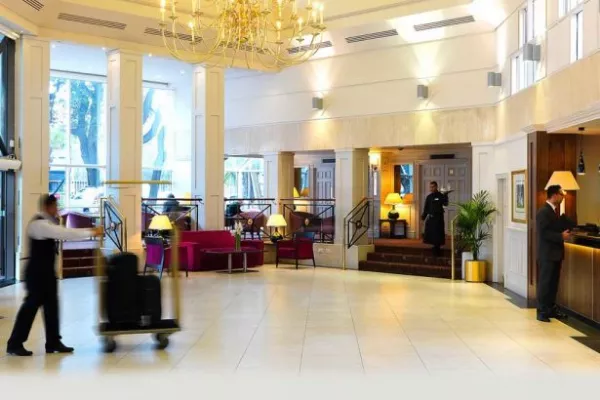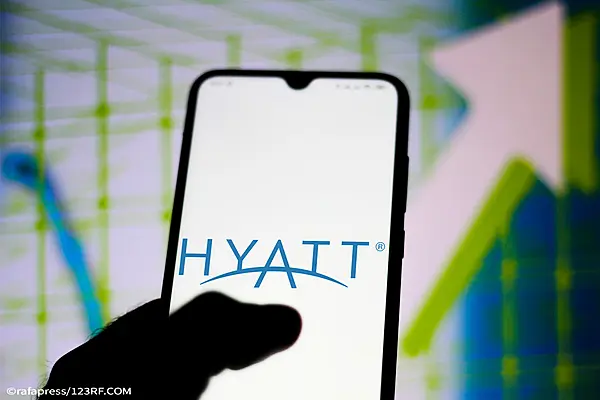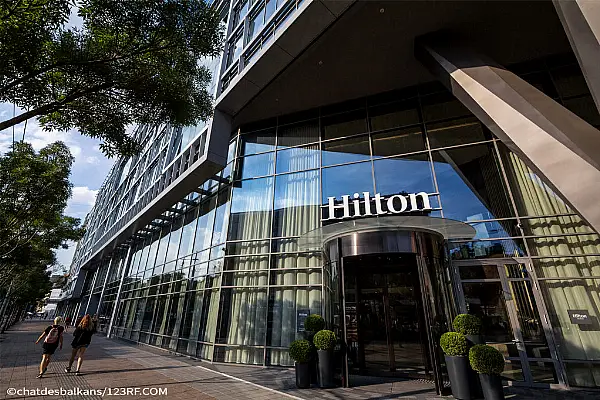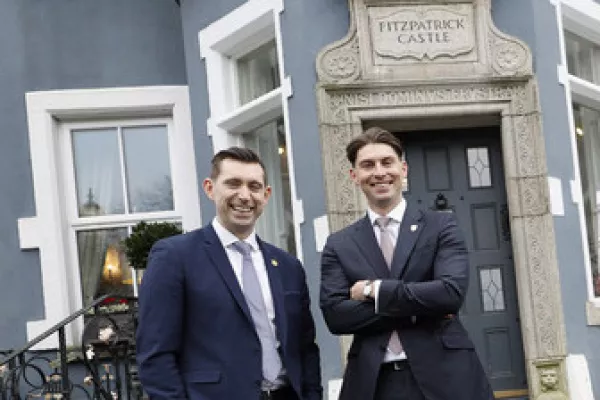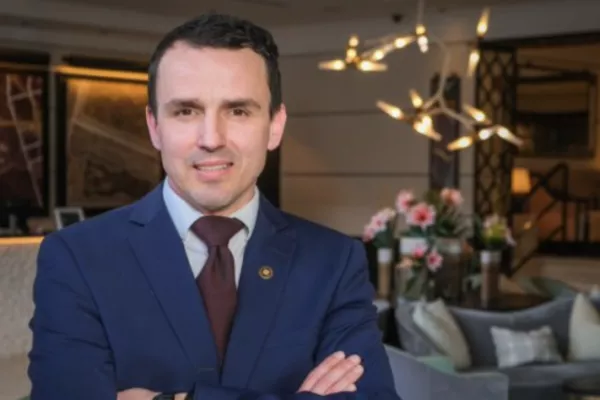The battle for Starwood Hotels & Resorts Worldwide may be over, but the company’s chief executive officer says it’s just the beginning for lodging-industry mergers.
"Clearly the Marriott-Starwood transaction has created a lot of chatter about further consolidation,” Starwood CEO Tom Mangas said on a conference call with analysts in which he and Marriott International. CEO Arne Sorenson discussed the outcome of a three-week bidding war for Starwood. The deal, solidified after Thursday’s surprise exit of rival bidder Anbang Insurance Group, will drive cost savings and revenue growth, Mangas said.
The hotel industry is consolidating following a drop in lodging stocks last year and signs of slowing revenue growth for the industry. Hyatt Hotels Corp. had been in talks to acquire Starwood last year before Marriott swooped in. Closely held Carlson is exploring strategic options for its hotel group, whose brands include Radisson, according to a person with knowledge of the matter. UK-based InterContinental Hotels Group, owner of its namesake brand along with Holiday Inn and Kimpton, held talks with financial advisers about whether to sell itself or combine with a competitor, people with knowledge of the matter said in November.
‘Increased Pressure’
“Competitors will observe and see how it goes and decide how critical it is for them to play,” Mangas said on the call Friday. “To the extent that we execute well, I think they’ll feel increased pressure for consolidation in what’s an extremely fragmented market worldwide.”
Elizabeth Costello, a spokeswoman for Carlson, declined to comment, as did Stephanie Sheppard, a spokeswoman for Hyatt, and Aaron Radelet, a spokesman for Hilton Worldwide Holdings Inc., currently the largest hotel company globally by room count and market value. Neil Hirsch, a spokesman for InterContinental, also declined to comment.
The global hotel industry remains highly fragmented, creating opportunity for expansion through acquisitions as well as development. While the company resulting from Marriott’s purchase of Starwood will be No. 1 worldwide, with 1.1 million rooms in 5,700 properties, that remains a small part of the global lodging market. The enlarged Marriott will control only about 15 percent of the hotel rooms in the U.S., Sorenson said on Friday’s call.
“Even though we’re the largest, we’ll still have a tiny market share worldwide, which creates significant opportunity for us,” Starwood’s Mangas said.
No Remorse
Sorenson said his company has “zero buyer’s remorse” about the Starwood purchase and is “thrilled and enthused” to be acquiring the company, even at the higher price it agreed to once Anbang emerged as a competing bidder. He said Marriott never communicated with Anbang, relying on Starwood to keep it informed, and he hopes to meet Anbang Chairman Wu Xiaohui someday.
Anbang might pursue more U.S. hotel assets, Mangas said. Even after its abrupt decision to back out of the Starwood bidding, the Chinese company remains a credible buyer, he said.
“Having sat across the table from Chairman Wu and Anbang, they are a very formidable and incredible counter-party,” Mangas said. The Anbang group’s first offer came with a fully financed commitment from a “top 10” bank, which he declined to identify.
“We believe they were capable of replicating what they had the first time around,” he said when asked if Starwood was comfortable that Anbang had committed financing in place for its second offer. “We never got that far.”
Waldorf Purchase
Anbang made its first U.S. hotel purchase last year, buying the Waldorf Astoria for $1.95 billion. It has an agreement to buy Strategic Hotels & Resorts from Blackstone Group for about $6.5 billion in a deal set to close later this year, according to people with knowledge of the matter. Strategic owns 16 high-end properties, including the Hotel del Coronado near San Diego, the JW Marriott Essex House in New York and the Westin St. Francis in San Francisco.
“Anbang has a great interest in the U.S. hotel market,” Mangas said. “They’re a formidable and highly interested buyer of hotel assets -- both managed companies and hotel assets. They’ve been active in the U.S. market and I don’t see any reason why that would change.”
Anbang may look to companies such as Hyatt and Hilton as potential acquisition targets after pulling out of the Starwood deal, Simon Yarmak, an analyst with Stifel Nicolaus & Co., said in a note to investors Friday.
The Marriott deal hasn’t delayed Starwood’s own asset sales, Mangas said. The company has a goal of reducing its property holdings by about $1 billion this year. Prime holdings include the St. Regis in New York and the Westin Maui Resort & Spa.
“We’re full-steam ahead” on asset sales, Mangas said on the call. “Surprisingly, we still see good demand,” mostly from foreign buyers, including sovereign-wealth funds in the Middle East and Chinese insurance companies such as Anbang.
“We still feel very good about hitting our disposal targets for the year despite the relative noise of this transaction,” he said.
News by Bloomberg, edited by Hospitality Ireland
